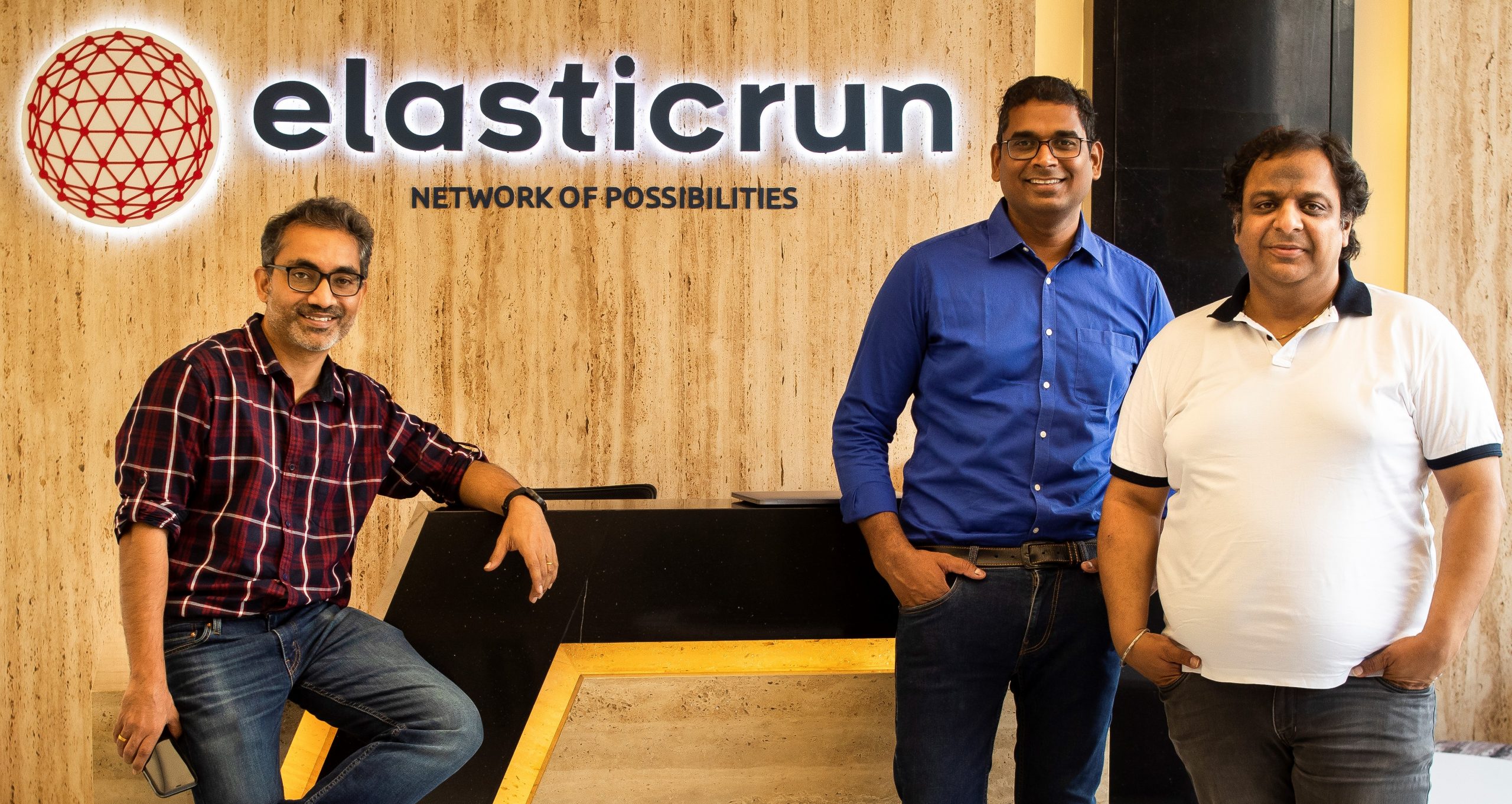BUSINESS
ElasticRun Founders: Reshaping Last-Mile Logistics in Rural India

In the vast landscape of India, where urban development and progress often dominate the headlines, there exists a different narrative – one of transformation and innovation in rural logistics. This narrative is not about the big cities or grand infrastructure projects; it’s about the relentless journey of three visionary founders – Sandeep Deshmukh, Shitiz Bansal, and Saurabh Nigam – who recognized a significant gap in the last-mile delivery ecosystem in India and decided to do something about it.
Sandeep Deshmukh, an instrumental figure in building Amazon’s last-mile delivery operations in India during his five-year tenure, identified a glaring issue in the delivery infrastructure. In 2016, along with Shitiz Bansal and Saurabh Nigam, he ventured out to bridge the last-mile delivery gap, especially in the rural heartlands of India. Their brainchild, ElasticRun, was born with a simple yet profound mission – to leverage technology and a collaborative network to make rural last-mile logistics more efficient and accessible. The concept behind ElasticRun was simple: build a robust B2B commerce platform and create an aggregated logistics network by harnessing the power of cloud technology, mobile devices, and local manpower available at kirana (local grocery) and neighborhood stores across India. The aim was to offer an “elastic” solution, where businesses could access the distribution and fulfillment capacity they needed in rural areas, on-demand.
However, every grand vision must confront skepticism. When presenting their idea to Vani Kola, founder and managing director of Kalaari Capital, a top venture capitalist, the founders faced resistance. Kola pointed out the inherent challenges in translating a detailed business plan into practical action, especially in the unpredictable landscape of rural India. While the meeting was tough, Kola left them with an encouraging note: “I am sure you guys will figure out a way whenever it gets stuck.” True to Kola’s words, ElasticRun did face challenges in its early days. Despite securing agreements with significant dairy and pharma companies, the projects didn’t take off as expected. The companies either took an agonizingly long time to decide or had limited appetite for innovative endeavors. The first year was far from smooth, and every day felt like a near-death experience due to the constraints of limited capital.
While the initial efforts with dairy and pharma companies didn’t bear fruit, ElasticRun found its savior in the ecommerce sector. Online retailers recognized the potential of ElasticRun’s logistics network to penetrate deeper into rural areas, fueled by the rising aspirations and purchasing power of rural India. As ElasticRun’s operations expanded, the company’s revenue soared from INR 9.6 crore in FY17 to INR 63 crore the following year, and an impressive INR 208.2 crore in FY19. ElasticRun’s growth story attracted venture capital investments. The company raised a Series C round of $40 million in October 2019, with marquee investors like Kalaari Capital, Avataar Ventures, and Prosus joining the journey. Although the company’s losses increased, it was at a manageable rate, from INR 7.3 crore to INR 16.4 crore to INR 41.6 crore during the same period.
The turning point for ElasticRun came in 2020 when the COVID-19 pandemic reshaped the ecommerce and logistics landscape. The sudden collapse of traditional fulfillment networks and the contrasting growth of rural markets brought ElasticRun into the spotlight. ElasticRun became the preferred logistics partner for FMCG companies, facilitating their reach into the hinterlands. In a span of two years, ElasticRun’s revenue surged over threefold, crossing INR 3,848.3 crore in FY22, and the company entered the coveted unicorn club with a Series E round of $330 million, attracting new investors like SoftBank and Goldman Sachs.
ElasticRun has set its sights on expanding its network to cover one million kirana stores within a year. As the company enters new territories and builds deeper connections with FMCG giants like P&G, Colgate, ITC, and Britannia, it is poised to redefine rural India’s supply-chain ecosystem. For founders Sandeep Deshmukh, Shitiz Bansal, and Saurabh Nigam, ElasticRun is a testament to their unwavering determination, innovative thinking, and resilience in the face of adversity. As ElasticRun continues to reshape last-mile logistics in rural India, the founders remain committed to building something 40-50 times larger than their current success.
In a world where innovation can transform even the most challenging landscapes, ElasticRun’s founders have demonstrated that with vision, persistence, and adaptability, they can create lasting change.
